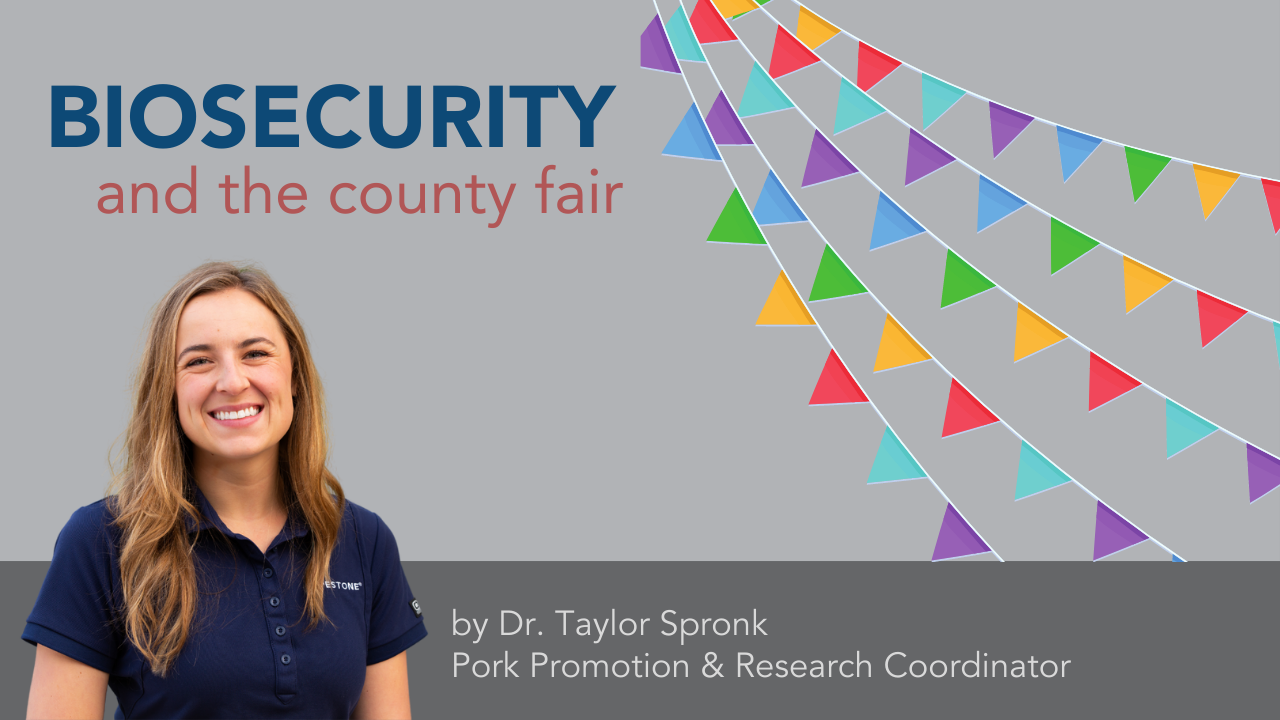

A fairly biosecure way to enjoy your local fairs:
- Everyone at the fair has a responsibility to protect pig health.
- Going to fairs, or anywhere else that has pigs from a different source, creates risk for your farm.
- There are easy and effective steps you can take to mitigate those risks.
As producers, it’s easy to think of show pigs as completely different from commercial pigs that they start to feel like another species entirely. Pig shows & local fairs are any vet’s biosecurity nightmare. Pigs and other animals from a myriad of sources, sites, and owners, fairgoers who have little animal health and biosecurity understanding, and commercial pig producers … it’s a situation simply asking for disaster. But fair organizations, exhibitors, and fairgoers can all help reduce the risk and still enjoy these great events.
Fair organizations create rules to manage disease risk by requiring permanent USDA tags that contain a premise ID, by following federal law when health papers are required, and even potentially asking for negative diagnostic testing for certain high-risk diseases. Exhibitors can use best practices like leaving sick animals at home, quarantining animals after coming home from the fair, and thinking through their vaccine plans before the fair to ensure show stock have the best immune protection possible when entering a high-risk environment. Fairgoers can additionally help by washing their hands, safely interacting with animals, and asking questions of exhibitors.
While this could deter you from the fair altogether, as a former stock show kid now working as a practicing swine vet, I’d encourage producers to look at these events differently. Young exhibitors are a gold mine of industry prospects. These hard-working and ambitious proponents of agriculture possess the skills to make ideal employees and maybe future industry leaders.
For commercial pig producers, the thought of bringing home potential diseases is a big deal. I am confident the fair poses a risk for flu, Mycoplasma hyopneumoniae, and potentially PRRS. But disease risks from the fair can be mitigated by wearing different shoes, taking a different vehicle if possible (if not possible, washing your vehicle on the way home), wearing different clothes, and showering before coming and after leaving the fair. In addition to these steps, PIPESTONE sow employees are also required to have two nights away from fairs or any other pigs before coming back to work. While this isn’t often practical in wean-to-finish farms, give yourself as much downtime as you can – even one night is better than nothing.
We all have an impact on pig health both at the fair and in our commercial barns. Enjoy the fair but please, do so responsibly.







